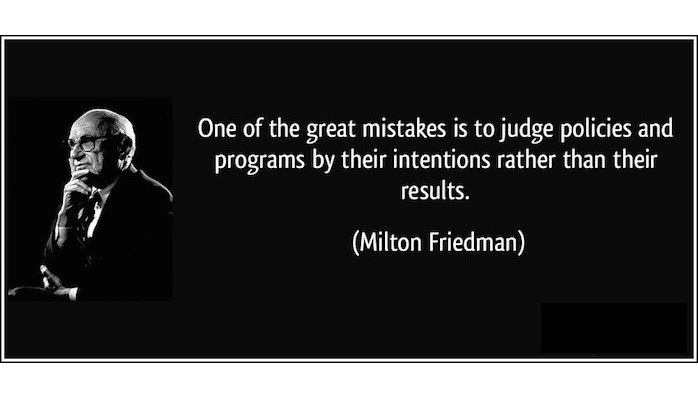
The Unintended Consequences of Consolidation
When a company acquires another company, the message to the public is that the acquisition is good for consumers and good for the industry. Reality is that its about profit. Both companies have something to gain, otherwise the acquisition would not occur.
Acquisition of course is a natural occurrence within capitalism. There is no point in fighting it. The masses find comfort in acquisition because it is a form of consolidation that leads to fewer choices. Individually we want choices, but as a people we want the risk of making the wrong choice reduced or eliminated. Consolidation does this for us.
Few vs. Many
With cell phone service we have but a few providers from which we may choose. Same goes for cable TV and Internet service providers. Not a ton of options. As a result, we don't have to think too hard about which provider we should choose. The choice is practically made for us. We just have to select a package from one. Not until we begin utilizing the services within the package do we fully comprehend what we actually purchased.
When we visit the supermarket or department store however, the choices are overwhelming. As a result we find ourselves scrutinizing the details. We don't just look at the sticker price. We look at the price per unit. We look at expiration dates. We consider the shelf life of what we are buying. We compare and contrast with numerous other similar products. We keep a radar up for potential sales and discounts. We even consider the value and experience of shopping at other stores.
1) Complacency
Much like when consumers have few options of cell phone providers, cable TV providers, and Internet service providers we become complacent to the choices that are available and simply accept what is served us, when businesses have few options in the B2B world they too become complacent. This is a natural phenomenon that occurs as a result of consolidation. Businesses accept what is available and don't take on the challenge of getting precisely what they need.
2) Antiquated Systems
On that note, we wind up selecting a package from one of the few options available. Not until we begin utilizing this package do we fully comprehend its value for our business, or lack thereof. By this time we are more committed to (or locked into) the package, and moving away from it has consequences. We begin to see flaws in the package, flaws that stem back to the consolidation where information and legacy systems are not integrated as we were made to believe. This is what we call antiquation, which frankly is a business killer.
3) Degrading Customer Service
Another a result of consolidation is degradation in customer service. We see this all the time, as organizations grow and combine with other organizations, the volume of problems increases and the flow of customer communications balloons. Customer service becomes increasingly more challenging. Many companies resort to automated tele-systems and offshoring to locations that don't speak your native language. As a result, a quality customer experience is threatened.
4) Stagnate Innovation
The big name and brands we know today were once nobodies, e.g. Apple, Google, Microsoft, IBM. They are who they are because of innovation and scalability. But as they grow, their innovation slows and acquisition becomes necessary to avoid being eclipsed by the Facebooks, the Twitters, the Tumblrs, etc. Case in point, Yahoo! acquired Tumblr because it realized the advertising potential. Rather than innovate, it acquired.
The names above are the behemoths and in some ways the exceptions to the rule in the sense that while they do acquire up-and-coming fish they also have done well remaining innovative. Lesser known entities however with pockets not as deep are prone to becoming stagnate with their innovation.
These are the unintended consequences of acquisition. The companies mean well for themselves and their shareholders and stakeholders by solving key challenges such as improving profit, achieving growth, and avoidance of being eclipsed by innovation. The actual benefits to consumers and the marketplace might appear on the surface, but beneath that we often see higher prices, lower performance, and overall less actual value.
Earlier this week Cox Automotive announced that it would be acquiring Dealertrack for $4 billion. I wrote about it in depth on a post titled Cox Automotive Acquisition of Dealertrack Pinnacle of Consolidation. This is a "blockbuster" acquisition for the automotive retail industry that many dealers will find comfort in because they will be told that the combination will provide a "broader suite of open solutions."
Make no mistake, the "broader suite" isn't being formed by the acquisition. The broader suite already exists. All that is being consolidated is the flow of profit and access to data. Auto dealers and consumers will not gain from this acquisition.
This acquisition will not result in integration of systems that benefit auto dealers. This acquisition will not improve or enhance the customer experience for dealers. This acquisition will not result in any significant innovations.
The dealers that do not drink the Kool-Aid and break the mold are the ones that will benefit. These dealers will continue to meet their manufacturer requirements but also distinguish their dealerships in the marketplace by seeking out solutions that serve their own local dealer strategy as opposed to a pre-packaged or antiquated solution serving the consolidated entities.
These are the dealers that push technology and spur innovation. These are the dealers that seek out the best solutions regardless of convenience, size, and alliances.
Author Note: The ideas and opinions in this article do not necessarily represent or reflect the views and opinions of my employer 3 Birds Marketing where I am the Great Lakes Regional Sales Director.
Founder; Keynote Speaker; Board Member; Author; SEO/SEM Skeptic; We're always open to challenging projects/opportunities!
8yGreat post! I would argue that the consequences you detail are likely not unintended in the minds of most consolidators.